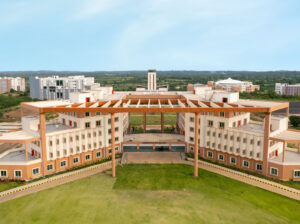California/Bangalore: When he came to Stanford to pursue his MS and PhD a few years ago, Dinesh Bharadia, an Electrical Engineering graduate of IIT Kanpur, wanted to solve “an interesting, hard problem.” He chose one that had stumped scientists for almost 150 years. Now, the 28-year-old Stanford PhD, currently a researcher at MIT, has been honored for the resulting work with the 2016 Marconi Society Paul Baran Young Scholar Award.
Dinesh Bharadia was selected for his work on full duplex radios. The 28-year-old has developed a solution that effectively doubles available radio spectrum in a bandwidth-constrained world. Solving a problem that has stumped scientists for almost 150 years, Bharadia’s work provides effective self-interference cancellation technology that enables radios to transmit and receive on the same frequency.
Bharadia will receive the award at a ceremony at the Computer History Museum in Mountain View, California, on November 2. Also, Brad Parkinson, considered the “father of GPS,” will be honored with the annual Marconi Prize for 2016 on the same occasion. Three other Young Scholars were selected this year: Stefania Bartoletti , George MacCartney, and Junwen Zhang. The Marconi Society, dedicated to furthering scientific achievements in communications and the internet will honor four 2016 Paul Baran Young Scholars for their outstanding research and innovations in networking.
Young Scholar candidates are nominated by their academic advisors. Winners are selected by an international panel comprised of engineers from leading universities and companies, and receive a $4000 prize plus expenses to attend the annual awards event.
Bharadia thinks receiving the Marconi Young Scholar award is especially rewarding because his work has a direct connection to Marconi. “Marconi, invented the radio but couldn’t solve the problem of duplexing,” he says. “It’s fitting that this work should be recognized by the Marconi Society.”
Asked how he thought his work could help leverage communications in a developing scenario like India, Bharadia says: “India has much denser users when it comes to cellular data connectivity and very few cellular towers. In simple words, if I can talk and listen at the same time in context of wireless radio, then one can double the data we can service. Second, this technology can be used easily to build relays which can listen to signal from the cellular tower and transmit it instantaneously, which would help us to extend the range very easily in India. This is very much needed as we have a very few towers; by deploying simple relay, we don’t need to put in entire infrastructure for the cellular towers.”
Stanford Prof. Sachin Katti, said that Bharadia’s work has other important implications. “Dinesh’s work enables a whole host of new applications, from extremely low-power Internet of Things connectivity to motion tracking. It has the potential to be used for important future applications such as building novel wireless imaging that can enable driverless cars in severe weather scenarios, help blind people to navigate indoors, and much more.”
The Marconi Society was established in 1974 by the daughter of Guglielmo Marconi, the Nobel Laureate who invented radio. The organization promotes awareness of key technology and policy issues in telecommunications and the Internet. The Society is best known for its annual $100,000 Marconi Award and Fellowship given to living scientists whose scope of work and influence emulate the principle of “creativity in service to humanity.






